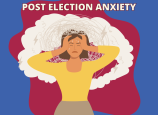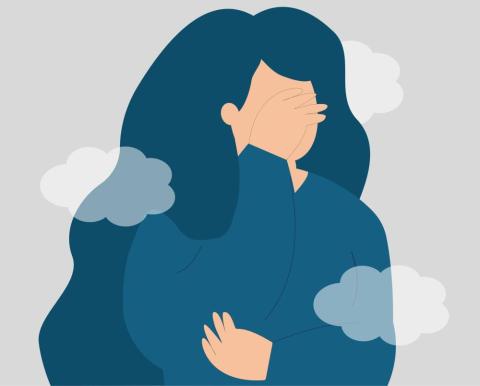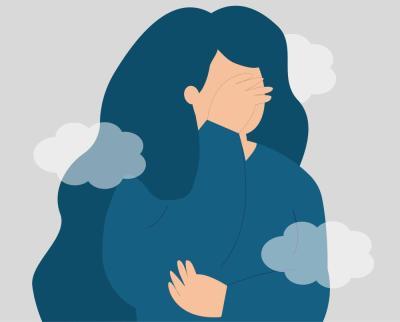The Impact of Post-Election Uncertainty on Women’s Mental Health
The Impact of Post-Election Uncertainty on Women’s Mental Health

For many women, the 2024 presidential election felt personal. In the days since November 5th, women have reported feeling anxiety, anger, sadness, and even hopelessness. Research suggests that politics in general, and election cycles specifically, have become a significant source of stress for a majority of Americans, but women were more likely than men to worry about how the election results would impact their lives directly. Similarly, research on the 2016 election found that women reported higher levels of stress, anxiety and fear post-election than men.
Issues impacting women were frequently discussed throughout the election season. A wide range of opinions and policy proposals created significant uncertainty about the future. How would the future of health care look for women? Would laws regarding equality in the workplace be changed or maintained? Many women worry about how to manage tension in their relationships with loved ones who share different opinions. Even with the election decided, uncertainty remains. No one knows what domains of policy will be prioritized or what laws will be approved. How will daily life for women be impacted by the new administration?
A primary driver of anxiety is an intolerance of uncertainty. Anxious minds like to know what is going to happen and how we will cope with it. Post election, there is some reasonable uncertainty, because real changes are being proposed by the government. When there is reasonable uncertainty, problem-solving and planning ahead may be warranted. However, anxiety can also produce unreasonable uncertainty, also known as “catastrophizing,” in which you jump to worst-case scenarios, without evidence to support the worry in the present moment.
In the face of unreasonable uncertainty, we take actions to try to gain control, including Googling, asking for reassurance, planning ahead for every possible outcome, or avoidance. Some may be thinking that all those certainty-seeking behaviors are necessary to protect themselves from negative outcomes. But when we stay in the present moment, we may notice that many of these behaviors are actually attempts at protecting against uncomfortable emotions. Unfortunately, these same behaviors keep us stuck in an anxious state, thinking about the frightening possibilities and fueling more doubt.
Instead of fighting against uncertainty, we can practice accepting the discomfort. Acceptance means willingness to feel all emotions, without escaping or avoiding. Acceptance is not approval, permission, or appreciation. It is simply saying, “I know I cannot change this, so I will allow myself to feel whatever I have to feel.”
This does not mean that women must be accepting of changes that they do not agree with! But accepting emotions is not acceptance of politics. Acceptance means acknowledging that in our current political climate, the feeling of uncertainty about the future is likely here to stay for a while.
Instead of engaging in actions based on fear, we can practice choosing behaviors that support your values. Value-based actions may include volunteering in your local community or calling your state’s representatives in local, state, and federal government.
If you are a woman feeling anxious and angry in the aftermath of the election, you are not alone. Many are grappling with the uncertainty of not knowing what changes are coming. Accepting these difficult emotions can help you choose more effective ways to respond.
This post is presented in collaboration with ADAA's Women’s Mental Health SIG. Learn more about the SIG.





















